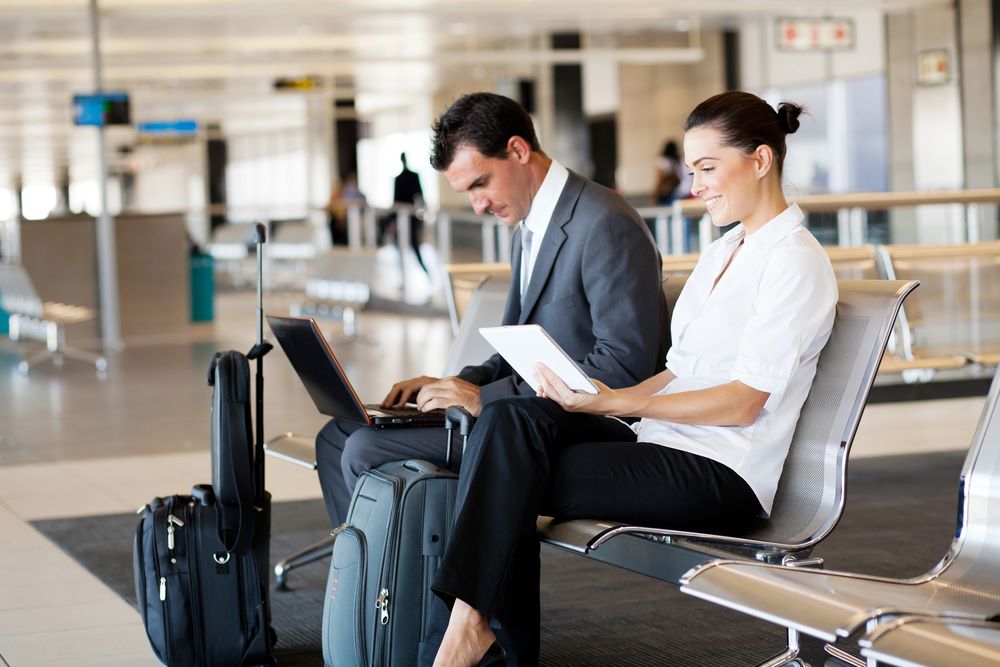
Tax and Accounting Services
About DuPage Tax Solutions
DuPage Tax Solutions is located in Naperville, IL. Our clients are mostly residents and small businesses within the Chicago metropolitan area – DuPage, Cook, Will, and Lake counties. Our remote work capabilities allowed us to extend our services nationwide. Today, we pride ourselves in having clients from all 50 states. Our virtual services are fast, easy, and convenient. Clients submit and review documents electronically through our secured online portal.
Turn Travel into a Tax Deduction

Did you know your next vacation could qualify as a tax deduction? With the right strategy, travel can become a powerful business write-off. In this guide, we break down how to structure your travel to stay compliant with IRS rules.
Home » Turn Travel into a Tax Deduction
Schedule Business Appointments Before You Travel
For travel to qualify as a business tax deduction, the IRS requires a “prior set business purpose.” That means you must schedule at least one business appointment before departing.
Many taxpayers mistakenly believe they can turn a personal trip into a deductible expense by simply handing out business cards during travel. That’s not the case. Business intent must be established beforehand through scheduled meetings, events, or presentations related to your work.
If you don’t have existing contacts in your destination, consider advertising or reaching out in advance to schedule interviews, client meetings, or networking events. Keep all emails, ads, and confirmations as proof of your business intent.
Meet the IRS Definition of Business Travel
Not all travel counts as business travel. To meet IRS standards, the trip must:
- Require you to leave your regular work location
- Be longer than an ordinary workday
- Require sleep or rest due to work demands
You don’t need to travel far. Even a local conference with an overnight stay may qualify, as long as the travel is necessary to fulfill your professional duties.
Deduct Eligible Travel Expenses
While on qualified business travel, you may deduct a variety of expenses, including:
- 100% of lodging costs
- 50% of meal expenses (100% for meals purchased from restaurants in 2021 and 2022)
- Transportation such as flights, car rentals, taxis, or rideshare services
- Laundry, dry cleaning, and personal grooming services used during the trip
- Tips and incidental expenses
For expenses under $75 (excluding lodging), receipts are not required. However, you must keep a record—such as a travel diary—noting the amount, date, location, and business purpose of each expense. Lodging always requires a receipt, regardless of amount.

Ensure Business Days Outnumber Personal Days
To deduct the cost of transportation (such as airfare), business must be the primary purpose of your travel. That means more than 50% of your trip must be dedicated to business activities.
When calculating, count:
- Days spent traveling to and from your destination
- Days with scheduled business meetings or events
- Weekend days between two business days
Days used for sightseeing, vacationing, or personal relaxation do not count as business days and must be excluded when calculating lodging or meals deductions. However, once the majority of days qualify as business, transportation costs may still be fully deductible.
Combine Work Trips With Leisure—Legally
Combining personal and business travel is allowed, but you must separate the expenses. Only costs related to business days and activities are deductible.
To stay compliant:
- Plan in advance
- Keep detailed records
- Document the business purpose of your travel
Strategic planning ensures that your business travel deductions remain valid even when you add in a little downtime.
Include Weekends in Your Travel Deductions
If your business travel includes a Friday meeting and another one on the following Monday, the IRS allows you to deduct expenses from the weekend in between. Even if no business activities occur on Saturday and Sunday, you can deduct all business expenses incurred during those days.
This rule can make a big difference in maximizing your deductible travel expenses.
Bringing Family? Know What’s Deductible
Bringing family along on a work trip can be tempting—especially if you’re headed somewhere warm or scenic. But when it comes to business travel deductions, the IRS has clear limits.
To deduct a family member’s travel costs, they must have a defined business role. This could include assisting with presentations, attending meetings, or managing logistics.
If your spouse or children are only there for leisure—like sightseeing or relaxing by the pool—their portion of the expenses isn’t deductible.
Final Thoughts on Business Travel Deductions
With the right documentation and planning, business travel deductions can lead to significant tax savings.
Maintain detailed records of expenses, appointments, and the business purpose of each trip. When structured properly, business travel deductions can significantly reduce your tax burden while keeping you compliant with IRS rules.
Want help reviewing your last trip or planning your next one? Contact our office to make the most of your business travel deductions.
Topic no. 511, Business Travel expenses. Internal Revenue Service. https://www.irs.gov/taxtopics/tc511
You May Also Like These


Household Employee Tax Basics

Tax Planning for Major Life Events

Summer Tax Planning Tips
Ready to Take Control of Your Finances?
Contact us today for personalized tax, accounting, and advisory services tailored to your needs. Let’s work together to achieve your financial goals!

Contact Info
Ph. (630) 909 9700
Email: DPTax@DP-Tax.com
Mail address:
1552 Illinois Rte 59 #1037
Naperville, IL 60564
Business Hours
Mon: 11 am – 7 pm
Tue: 11 am – 7 pm
Wed: 11 am – 7 pm
Thu: 11 am – 7 pm
Fri: 11 am – 7 pm
Sat: 12 pm – 5 pm
Sun: CLOSED
Helpful Links
© 2024 DuPage Tax Solutions | Site Map | Privacy Policy | Disclaimer
